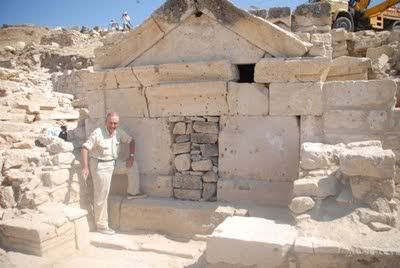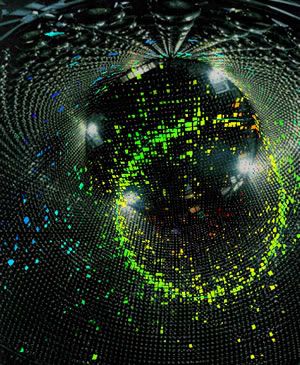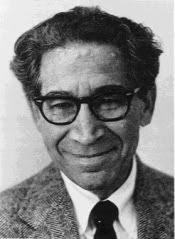
Tomb of Philip at Hierapolis
The Figure that Lowder doesn't even mention is Papias. There are actually several that he didn't mention I will cover here. In addition to Papias I'll deal with the daughters of Philip. Papias was Bishop of Hierapolis (in Phrygia, sort mid southwestern Turkey). We don't know his exact dates, some have him being born as early as AD 70 (the fall of the temple) and dying as late 155.[1] His writings are mostly dates to around 130.[2] He died in Smyrna (mid way down Western coast of Turkey). By the second century the center of the faith had shifted to Antioch, in Syria and a lot of missionary activity was in Asia Minor. Only fragments of his Writings Survive most of those come to us from either the Irenaus or Eusebius.
There is a famous fragment that has come to us from Eusebius that might imply either that Papias knew disciples of Jesus who were eye witnesses or that he contact with them:
I shall not hesitate to set down for you along with my interpretations all things which I learned from the elders with care and recorded with care, being well assured of their truth. For unlike most men, I took pleasure not in those that have much to say but in those that preach the truth, not in those that record strange precepts but in those who record such precepts as were given to the faith by the Lord and are derived from truth itself. Besides if ever any man came who had been a follower of the elders, I would inquire about the sayings of the elders; what Andrew said, or Peter or Philip or Thomas, or James, or John or Matthew, or any other of the Lord's deciples; and what Aristion says, and John the Elder, who are dciples of the Lord. For I did not consider that i got so much from the content of books as from the utterances of living and abiding voices...Some think this imposes an intermediate group between the Apostles and Papias. If any man was a follower of the elders, he would inquire (of that man) what the elders said....so it does. He puts the second groups. "disciples" in the present tense: what Aristion says or John the Elder. This would imply they were alive during his own time. Just be was away from them and inquired what others heard from them doesn't mean he never met them. We have words of Irenaeus to the effect hat he did meet them. Ireneaus would know becuase Papias and Poly carp were contemporaries and knew each other.
Schoedel writes about Papias
According to Irenaeus, our earliest witness, Papias was "a hearer of John and a companion of Polycarp, a man of primitive times," who wrote a volume in "five books" (haer. 5.33.4; quoted by Eusebius Hist. Eccl. 3.39.1). Eusebius already doubted the reality of a connection between Papias and the apostle John on the grounds that Papias himself in the preface to his book distinguished the apostle John from John the presbyter and seems to have had significant contact only with John the presbyter and a certain Aristion (Hist. Eccl. 3.39.3-7). Eusebius' skepticism was no doubt prompted by his distaste - perhaps a recently acquired distaste (Grant 1974) - for Papias' chiliasm and his feeling that such a theology qualified Papias for the distinction of being "a man of exceedingly small intelligence" (Hist. Eccl. 3.39.13). Nevertheless Eusebius' analysis of the preface is probably correct; and his further point that Papias' chiliasm put him to the same camp as the Revelation of John is surely relevant. It is notable that Eusebius, in spite of his desire to discredit Papias, still places him as early as the reign of Trajan (A.D. 98-117); and although later dates (e.g., A.D. 130-140) have often been suggested by modern scholars, Bartlet's date for Papias' literary activity of about A.D. 100 has recently gained support (Schoedel 1967: 91-92; Kortner 1983: 89-94, 167-72, 225-26).[4]Irenaeus calls him a "hearer of John." Eusebius says he wasn't a hearer of the Apostles. Since Eusebius was so much further removed from the scene than Irenaeus it's more likely he would know better. Of course the statement would also make sense if it was the Elder John he knew not the Apostles John. He also says he was a companion of Polycarp. Whichever John they knew they must have both known him at the same time. This all meets Lowder's criteria becasue Irenaeus was in a position to know that Polycarp knew John (although perhaps not which John) and that he also knew Papias. Papias and Polycarp knew disciples of Jesus, this is independent of reading the gospels.
Schoedel writes about the comments of Papias
What the fragments have to tell us about Mark and Matthew is information that Papias himself traces to "the presbyter" (Eus. Hist. Eccl. 3.39.15-16). Eusebius separates the statements about Mark and Matthew, but they may have originally followed one another and certainly seem closely related. Perhaps the simplest reading of the statement on Mark is that Mark served as Peter's interpreter (possibly in the role of methurgaman, or oral translator) and wrote down what he heard Peter say of the words and deeds of Jesus and that his writing is defective in "order," though not in accuracy or fullness of recollection, because Peter naturally referred to the Lord's logia in a random manner. Some have suspected that Papias did not have in mind the gospel of Mark that we know, but the arguments are tenuous. On another point, Kurzinger has attempted to show that Papias was speaking not of translation from the native language of Peter but of presentation of the reports of Peter (an interpretation which he applies also to Papias' statement about Matthew); but this seems to push a rhetorical approach to Papias' terminology too far (Schoedel 1967: 107; Kortner 1983: 203-4). On the other hand, an interpretation in rhetorical terms is somewhat more likely when it comes to the suggestion that Papias meant to say that Peter spoke "in chria-style" rather than "as needs (chriai) dictated." But the point that is debated more than any other is what Papias had in mind when he said that Mark did not write "in order." It is perhaps most likely that Papias was measuring Mark by Matthew (who is said by Papias to have made "an ordered arrangement" of the materials) - or perhaps more generally by Papias' own conception of what ought to be included in such an account - and that he had in mind completeness of information as well as "order" in the narrow sense of the term. In any event, Papias is defending Mark in spite of perceived deficiencies.[5]
My theory based upon this materiel and more (see my Doxa for details--Canonical Gospels--Gospel behind the Gospels) is that Mark may have been based upon Peter's memoirs, Matthew may have begun as an Aramaic saying source then latter adapted to narrative form in Greek by redactors. John started as the memoirs of "the beloved Disciple" (Lazarus? John the Apostle?) The Elder John of Papias who wrote the Epistles (so we are told by Eusebuis) was the last head redactor of John's Gospel. The community itself wrote the Gospel of John because it is so heavily redacted. I accept Luke's authorship becuase I can't see there being a Luke community since he had no real ties to Jesus.
There are indications from Eusebius that Papias had extended contact with the Elder John and with other disciples. Eusebius writes "in his writings he transmits other narratives of the words of the Lord which came form the afore mentioned Aristion and others which came from John the Elder" moreover he goes on, "the elder used to say this also: Mark became the interpreter of Peter and wrote down accurately, but not in order, as much as he remembered...'" And here Eusebius is quoting Papias. This phrase "the eder used to say..." indicates a personal acquaintance in more than one meeting.(Ibid.). Here we may have a direct link form eye witness to Apostolic "father." Moreover, he changes tenses when he speaks of Aristion and Elder John, the he speaks in present tense, as though he's still in contact with them.[6] Eusebius speaking of Papias in relating his Oracles of the Lord says:
Papias, who is now mentioned by us, affirms that he received the sayings of the apostles from those who accompanied them, and he moreover asserts that he heard in person Aristion and the presbyter John. Accordingly he mentions them frequently by name, and in his writings gives their traditions. Our notice of these circumstances may not be without its use. It may also be worth while to add to the statements of Papias already given, other passages of his in which he relates some miraculous deeds, stating that he acquired the knowledge of them from tradition.[7]He tells us that Papias affirms it directly that he knew the Elder John and other disciples. Because link the John that Papias knew with Aristion just as in Papias' famous quite, it would seem that Eusebius is telling us it was that John, the Elder, author of the Epistels and not the Apostle who Papias knew. It doesn't matter becasue they were all witnesses to Jesus' life.
Papias and The Daughters of Philip
Papias had other connections with living chruch history as well. in Hierapolis where he was Bishop there was also Philip and his four virgin daughters. The daughters of Philip were prophetesses, Paul is said to have met them in Acts (8:5-40; 21:8-9. ), and Papias is said to have met them as well. Eusebius speaks of this in the same passage tht he speaks about Papias:
The residence of the Apostle Philip with his daughters in Hierapolis has been mentioned above. We must now point out how Papias, who lived at the same time, relates that he had received a wonderful narrative from the daughters of Philip. For he relates that a dead man was raised to life in his day. He also mentions another miracle relating to Justus, surnamed Barsabas, how he swallowed a deadly poison, and received no harm, on account of the grace of the Lord.[8]Polycrates testifies (AD 190) to existence of these daughters and their burial and their father's burial at Hierapolis, "Philip of the twelve apostles who sleeps in Hierapolis and his two druthers, elderly virgins, and another of his daughters who after living in the Holy Spirit rests in Ephesos."[9] William Tabbernee documents an inscription from Hierapolis honoring a public figure which links the burial of Philip the apostle with the monument in his honor, the "martyrium." It refers to him as "the glorious Apostle and Theologian Philip.[10] Of course there are problematic details in these accounts. Other accounts give four daughters, Polycrates seems to only know of there. There is a controversy as weather or not this Philip is the evangelist of Acts (one of the first decons) or the Apostles, one of the twelve who traveld with Jesus. No one really knows. In a famous debate between a Montanist (Prokolos) and an Orthox (Gaius) reference is made to the four daughters of Philip as having resided in that area and being burried there.[11] There is a possiblity that the tomb of Philip has been discovered:
Italian professor Francesco D'Andria, the head of the excavation team at the Hierapolis ancient city in Denizli, told reporters on Tuesday that experts had reached the tomb of St. Philip whose name is mentioned in the Bible as one of the 12 Apostles of Jesus.
Professor D'Andria said archaeologists had been working for years to find the tomb of the Biblical figure, and finally, they had managed to reach the monument while working on the ruins of a newly-unearthed church in Hierapolis.
D'Andria said the structure of the tomb and the writings on it proved that it belonged to St. Philip the Apostle, who is recognized as a martyr in the history of Christianity.[12]
The Tomb is near the "martyrium" a structure put around the fifth century to commemorate the death of Philip. The martyruim is probably where he was crucified and the tomb where he was burred. Or it could just be that they didn't put the monument over his tomb because a chruch was there so they put it near by. It's not proof but it lends credence, it at least establishes that the tradition starches back further toward the actual event of his living there.
F.F. Bruce, an Evangelical Scholar, highly respected in all circles, tells us: "Eusebius tells us on the authority of Papias and other early writers that at a late date Philip's four prophetic daughters were famed in the church for authorities in the history of its earliest days." [13] That's probably exaggeration. As as been seen the only quotations I can find by Eusebius about Philip and his daughters say nothing of the kind. He's probalby basing that upon the miracle stories they told Papias. Yet they do provide a more important link to Papias than has been observed by scholars. These women have been overlooked, relegated to footnotes in the questions about their father's identity. They must have been important in their day, they show up in several sources even long after they were gone (Polycrates wrote in 190 and the report of Gaius and Prockleus was even latter). The site of their tombs was marked. They were prophetesses and that gives a status. Even though tehy were probalby weren't historians per se they surely did pass on stories about the early days as Papias attest. They knew their father who around in the early days of the faith. Even though the sources may have become confused on points such as which Philip we are dealing with, in my view it must be the evangelist [14] those are not big enough problems to lose the reality of Jesus as a real man in history.
All these connections provide a web of historicity. There are three major trajectories along which the historical evidence is found: the gospels (both canonical and extra canonical), the Pauline corpus, and the apostolic fathers. These form interdependent links that make a big web of historicity. Papias is linked to John or at least disciples of the Lord such as Elder John, and he's also linked to the Pauline corpus through his association with the daughters of Philip, who know Paul. Through Philip he has another link to the early days of the chruch. We have this big web all these groups of people that knew each other as we go more deeply into it the inner circles come close to knowing Jesus. Paul met several such as James and Peter who knew him intimately. He also knew Andronicus and Junia who were around in the early days and Priscilla and Aquila who were first followers of the Baptist. Irenaeus' teacher Polycarp knew Papias and knew he was a follower of eye witness disciples who saw Jesus. Yet how could it be that the core of the web is fictional?
How absurd to think people in Jerusalem just a few years after the disciples began preaching would say "my father never heard of this guy, my grandfather never heard of him, his followers say he spoke to throngs of people in the streets of Jerusalem they heralded him, they demanded his release when he was captured but no one has heard of him, no one I know has any memory of those events, I think I'll join his little band of twelve guys."
fragments form other sources.
http://www.chronicon.net/index.php/papias#Fragments
[1] The dates for his birth and death are not known and vary widely frm as early as AD 70(birth)-168 (death). For this reason it's more useful to try and date his literary activity, which is usually taken to be 130. He probably died in 155.
[2] "Papias of Hierapolis" American Bible Society (website) URL: http://bibleresources.americanbible.org/node/1222
It is notable that Eusebius, in spite of his desire to discredit Papias, still places him as early as the reign of Trajan (A.D. 98-117); and although later dates (e.g., A.D. 130-140) have often been suggested by modern scholars, Bartlet's date for Papias' literary activity of about A.D. 100 has recently gained support (Schoedel 1967: 91-92; Kortner 1983: 89-94, 167-72, 225-26).
[3] Documents of the Christian Church, edited by Henry Bettonson, Oxford:Oxford University press 1963, 27
[4] William R.Schoedel The Anchor Bible Dictionary, Newhaven: Yale University Press. Edited by David Noel Freedman first published 1956, current publication 2012.v. 5, p. 140
[5] Schoedel, op. cit., v. 5, pp. 141-142
[6] in Bettenson, op cit, 27)
[7] Eusebius, From the exposition of the oracles of the Lord. no VI On New Advent Catholic Encyclopedia website: URL: http://www.newadvent.org/fathers/0125.htm
[8] Eusebius, Oracles of the Lord op cit.
[9] William Tabbernee, Montanists Inscriptions and Testimonia:Epigraphic Sources Illustrating The History of Montanism.Macan Georgia: Mercer University Press 1997, 504
[10] Tabbernee, op cit 503.
[11] ibid, 505
[12] "Tomb of Philip The Apostle Discovered in Turkey?" News Network Archaeology. website URL:
http://archaeologynewsnetwork.blogspot.com/2011/07/tomb-of-philip-apostle-discovered-in.html#.UI6idmeZhTE
[13] FF Bruce, The New Testament Documents: Are they Reliable,published in USA by Wb Erdeman's Publishing company and Invervarsity press, originally published 1943, 1981 , p.43)
[14] The same quote by Papias about how he always tried to get word from those who had been with the elders, names Philip the Apostle among them. If he lived in Herapolis Papias would hardly need to learn his words form travelers coming in from elsewhere.






